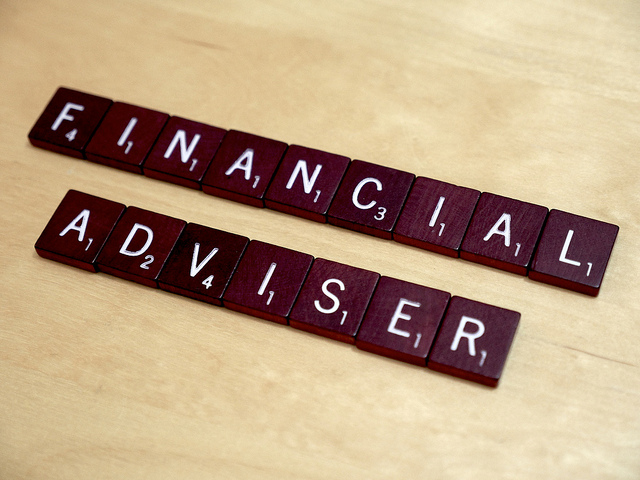I write occasionally, read voraciously, travel constantly, and love fiercely.…
Planning for retirement, looking for ways to finance a new home, saving for your child’s education, tracking and maintaining your finances. A qualified financial planner can help you plan and handle these daunting financial tasks. But finding the right planner is crucial as it can affect the security of your financial future. The following questions can help you evaluate and interview financial planners with whom you can work with on your short-term and long-term goals.
Get Know Your Financial Planner
First off, you need to know who you’re trusting with your money. It may not even be a question of qualifications (although this is definitely an important point), but of whether he or she understands your financial goals and needs and can help you out.
1. What licenses, regulations, credentials or other certifications do you have?
Experience counts a lot in the financial field, expecially experience gained in plunging and fluctuating markets. Aside from asking about their experience as an advisor, ask about their educational background, if they’ve been sued or reported for any legal action, and the smallest, average and largest portfolio they manage as some advisers only take high-net-worth clients.

2. Are you a fiduciary?
A fiduciary is an individual who has to place the client’s interest ahead of his or her own. Fiduciaries must also disclose what their fees are, how they’re compensated and any other potential conflicts of interest that might influence an individual’s decision to use their services. In contrast, non-fiduciary financial advisors might receive a commission in exchange for their services. Additionally, ask the planner if you’ll be working with only them or with a team.

3. What is your investment approach?
Ask about the advisor’s approach to financial planning and ensure that they consider your overall financial goals, values and attitudes even if they specialize in a specific area such as taxation, estate planning, insurance or investments. Other considerations to keep in mind are your investment objectives and risk tolerance, your cash flow needs, tax situation, risk management and estate goals.

Learn about the Services Offered
No matter how much you like your financial advisor, you need to make sure that the ways he or she can help you match up with how you want to invest your money. So here are a few questions to ask related to that.
4. What services do you/does your firm provide and how do you charge?
Ask whether there’s an initial planning fee, whether they charge a percentage for assets under management or whether they make a commission from selling you a specific product. Know what assistance the advisor will not give you. Some people are just investment advisors. Others do comprehensive financial planning around retirement, insurance, estate planning and tax planning. Choose a planner whose offerings suit your needs.

5. Do you have different models or investment pools dependent on client’s risk tolerance?
Risk usually relates to the decisions you would make in a volatile security market and the amount of money you might be willing to lose when there’s a dip in the market. Risk tolerance is usually measured with a series of standard questions, but it’s important to know the degree to which the advisor tailors your investments. Again, this is keeping in mind your investment philosophy and attitude.

6. Can/will you put it in writing?
Ask the planner to provide you with a written agreement that details the services that he or she will provide. This must be in a language that you understand, and both parties must agree on all terms. Keep this document for future reference.

Find out about the Client Experience
If you’ve never consulted a financial advisor before, it’s a good idea to ask him or her what you can expect as a client. That way, you aren’t always chasing after him or her for updates, and you also have a good idea of when to expect information, meetups, and more.
7. How often do you communicate with you clients?
Make sure you can have ready access to information and communication with the financial planner. Your advisor should not only answer your questions at any time, he or she should also proactively educate you on investments, financial strategies, assets, and more. Explain how often you expect to hold a meeting with your planner, be it annually or every few months, according to your preference.

8. What is your client profile?
Who is your ideal client? How many new clients do you take on each year? By limiting the number of clients the financial advisor accepts each year, he or she can well provide each one with personalized service catered for each individual client. Identifying an ideal client profile can help both you and your advisor determine if there is a mutual fit before working together. Also, ask the advisor to explain their client service philosophy and how they ensure each client receives personal and professional service.

9. How often will you evaluate my situation and provide an up-to-date forecast?
A good financial planner evaluates and provides updates on your financial situation on a yearly basis, at the minimum. Explain your financial goals to them to lay out a good plan and additionally, their should be proactive communication on both your end. Also, your advisor should be able to explain how he or she provides you with quality service and recommendations based upon your financial needs.

The right financial planner is not always evident so make sure you do your homework, get references, and ask the right questions from the get-go. A client-advisor relationship in financial planning should be proactive, wherein the client is engaged and asks questions. The advisor in turn effectively answers these questions in a language that the client understands to the letter.
A good financial planner is one who entertains any questions you may have regardless of how many. What’s important is that you feel that you can trust them since they will be helping you secure your future, financially.
Featured Image: “Business Woman” by Steve Wilson
What's Your Reaction?
I write occasionally, read voraciously, travel constantly, and love fiercely. Talk to me about adventure, cultural events, psychology, and world domination. Introverted and loud, awkward and proud.
